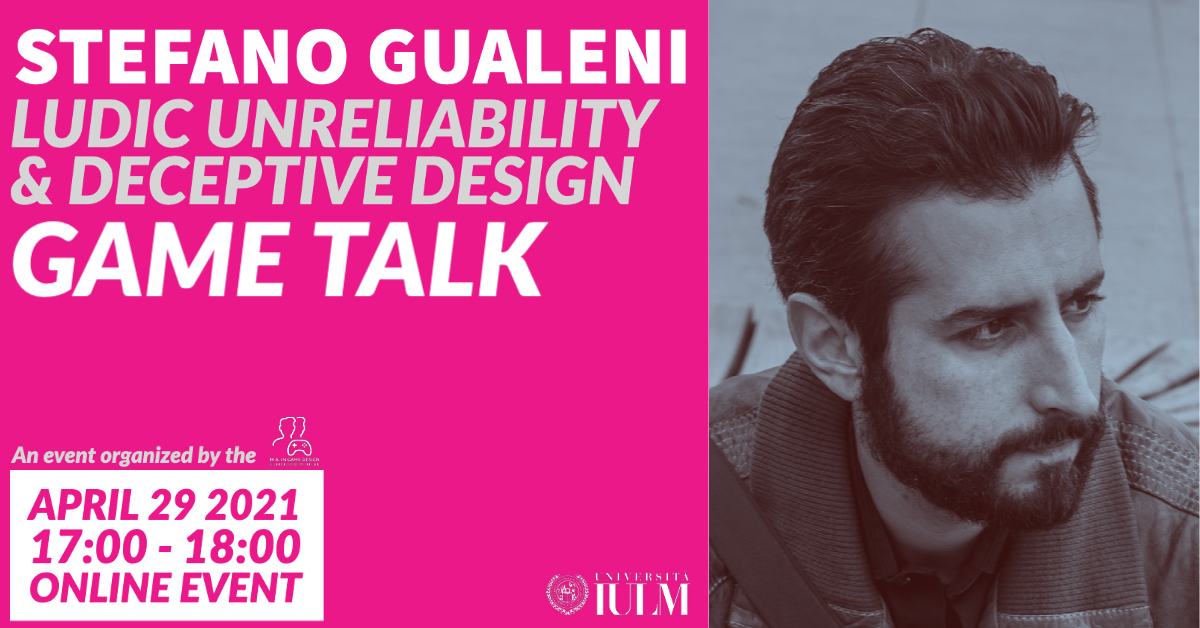
On Deceptive Game Design - Video Lecture by Prof. Stefano Gualeni at University of São Paulo


Building on the notion of the Implied Designer and “ludic unreliability” that he has been working on in the past years together with Dr. Nele Van de Mosselaer (University of Antwerp), Prof. Gualeni introduces the idea of Deceptive Game Design in the video lecture below, presented for the University of São Paulo (Brazil).
Those two notions are then leveraged to present the idea of “deceptive game design”, which they treat as a subset of the wider category of transgressive game design.
Gualeni discusses deceptive design as having the objective to provoke specific experiential and emotional responses that are in the interest of players. Several game examples and strategies for deceptive design are examined during the talk.
The video was recorded on the 18th of May, 2021.
The paper on the notion of the implied designer can be found here!
The article on the idea of deceptive game design is, instead, currently under review.
Transgressive Game Design - Emotional and Experiential Responses
Drawing from narratology and design studies, Stefano Gualeni introduces the ideas of the “implied designer” and “ludic unreliability”. Those two fundamental notions are then leveraged to present the idea of “deceptive game design”, a subset of the wider category of transgressive game design. In this talk, Gualeni discusses deceptive design not only understood as an intentionally manipulative practice, but also as one that aims to provoke specific experiential and emotional responses that are in the interest of players. Several examples and strategies for deceptive design will be examined during the talk, which will conclude with the proposition of a taxonomy for deceptive design decisions on the basis of their shared qualities (overt, covert, ludic, and paraludic).
Experimental Game Design
The notions discussed and used in deceptive game design align with those explored in Stefano Gualeni's IDG5252 Experimental Game Design course, a recently updated course where students learn about the relationship between social life and a particular kind of technology: games. In particular the critical design choices that may acquire new meanings, functions, and effects within a social context. Not only do the students of this elective learn to think critically about the values but they also develop a practical project to illustrate these decisions. Prof. Gualeni has been active in developing and researching this area of game studies through the implied designer as well as Construction BOOM!
Game Studies Research in Digital Humanties
Videogames are one of the key forms in today’s cultural landscape, taking their place alongside more established forms like theatre, film, TV, literature and performance art. Their impact is something we take seriously at the Institute of Digital Games. The Digital Humanities Research Group examines what games are, what they do, and how we experience them. Current research threads include tracking and mapping the differences in representation between traditional fiction and virtual reality, the player-avatar relationship in games, architecture and the built environment in game worlds, music and musicking practices in games, and the use of videogames as philosophical tools.
Interested to know more? Contact us!
Stay up to date with our events, lectures, and research:
--

